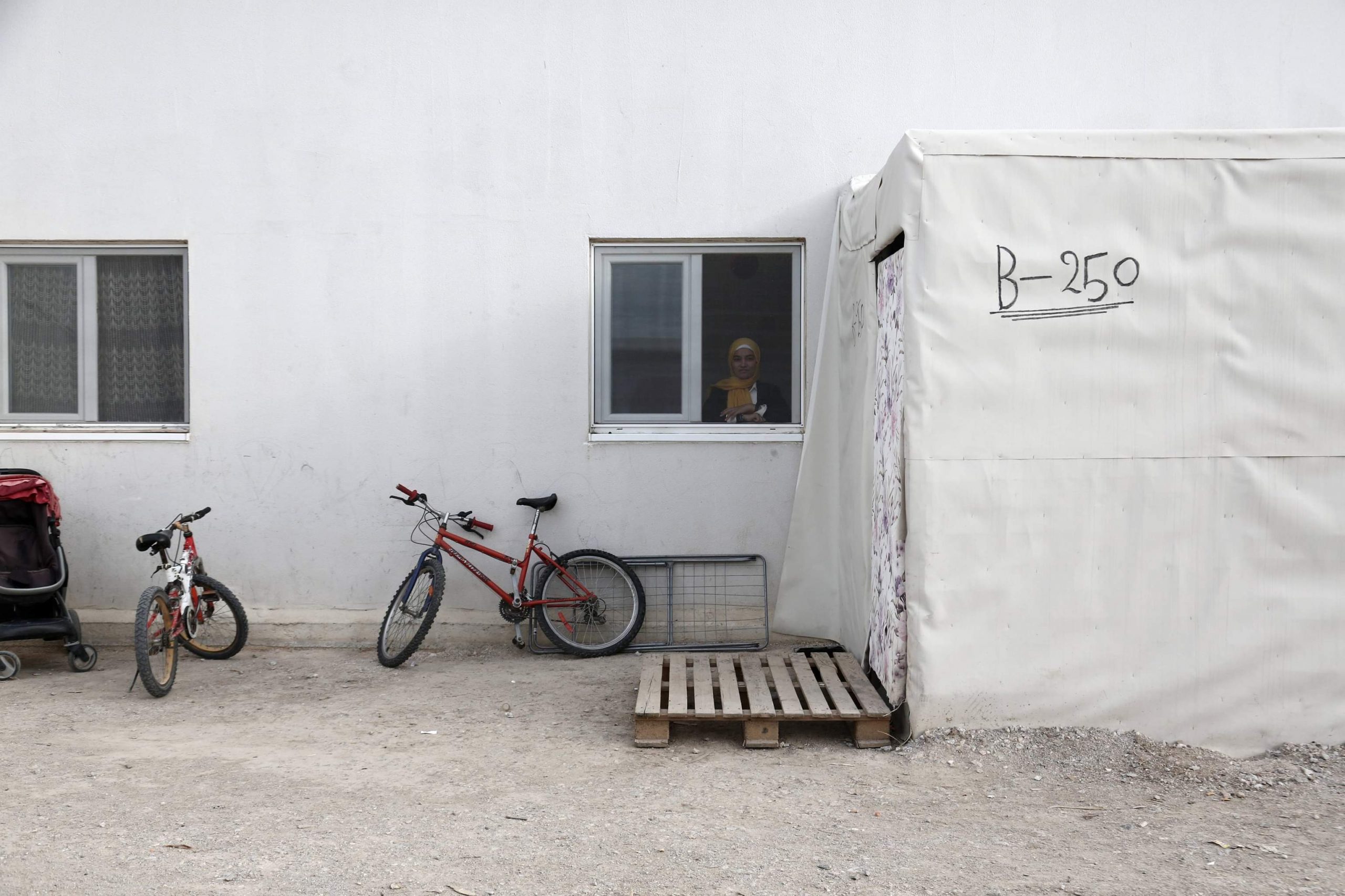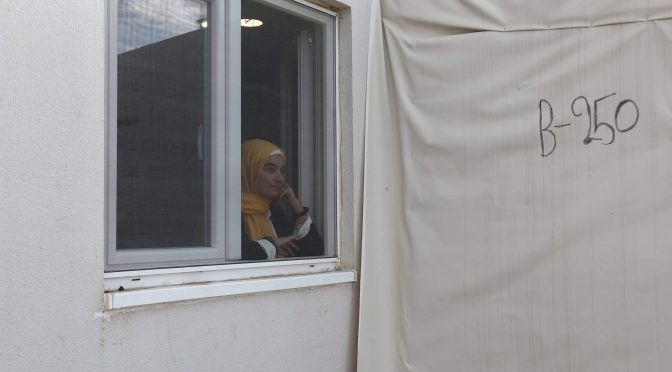To the world politicians – a letter waiting for an answer

My name is Parwana Amiri. I am currently living in Ritsona camp with 3000 more people, hundreds of whom are young girls, like me. I am writing to you, not because I trust or believe you, but because I must give voice to many people around me who still place their hopes in you. I discern this hope in their faces when they laugh, I touch this hope in their veins when I hold their hands, I witness this hope in the sparkle of their eyes as they meet mine. I can feel this hope while all along I can also sense the silent ocean of anger that they are trying to keep under control.
Can you understand, what I am talking about? We are here, thousands of wounded people, asked to prove our vulnerability. Yet, no one really sees us, no one really listens to us, no one really tries to understand our wound let alone heal it.
Have you ever written a letter and been waiting for an answer? It does not matter what the letter is about. You write and you expect an answer; a simple answer would do. We, too, expect an answer to our letters to you. A small change in our condition, even vague distant attention truly directed to our appeals would be enough to give us hope, hope that, despite our being different, we are still accepted, that the dream of integration will not be achieved by forcing us to become and behave in ways alien to us, but by accepting to live with us, respecting us as authentic human beings.
I live on a no man’s land determined to listen and record thousands of different life stories every day. Meanwhile, the only thing you are prepared to do is to pass ever more restrictive legislation regarding us, legislation based on the most limited knowledge of us acquired through the most superficial and short meetings with us. You write those legislations with a pen, but we feel them on our skin, in our bones, and our soul, every day and every night!
I am writing to you from a house inside the camp, looking out of my window at the wall surrounding us. Children are playing outside my window and I am certain that neither you nor anyone else would accept such conditions for their own children.
The sense of confinement is becoming oppressive. Our eyes are prevented from seeing the outside world. People pass by the camp in their cars every day and I wonder if they, too, share a similar oppressive sense of being kept in the dark about what goes on in the camp behind the walls.
I can see the wall from my window. It is 3 meters high. This image will persist in my mind for all time to come, reminding me that I have been forced to live as a prisoner, behind this wall.
We are told that the wall is for our own safety, but we have never been threatened by the people outside. Even if we were threatened, imprisoning us cannot be the answer. That what social justice dictates, not I.
I never imagined that, in Europe, people get confined and locked up because they are threatened from the outside and because imprisonment provides them with safety, a safety they will never truly have. Even the police do not come into this prison. I am not asking you to put yourself in our shoes. What I am asking is that, as you pass by alongside the camp, you stop and reflect. What are the feelings inside you when you consider that people are kept prisoners in your land, while you, as a citizen of that same land, have no clear idea as to who these people are, what their lives have been, or the reasons that made them flee their homes? What do you make of these people dumped in the margins of the capital city, people you do not visit even once per month, or talk to once per season, or see even once per year – rights that even criminals in prison can count on?
I suffer from this imprisonment. Immensely. And I struggle to go to school, to learn, to grow, always afraid of what others will think of me, of my life….
Ritsona is a reflection of the prison system that is part of the industrial complex, rooted in slavery, colonialism, and racist capitalism. The money spent on the wall is the citizen’s money. It is the money for the development of Europe. It should not be spent to maintain old systems of oppressive domination. They should, instead, be invested in improving the quality of life of the entire European society, so that every human being can thrive.
We are demanding our rights to a decent living, to decent jobs, to decent housing, to health care, and to education. As long as we are deprived of these rights, we will continue to challenge the fundamental structure of your society.
We are challenging the world to understand the complex ways race, class, nation, and ability are intertwined and how, only by addressing this complexity we can find the means to move beyond divisive categories, to understand the inter-relationships of ideas and processes that are presented as separate and unrelated and, together, fight for our common good.
From a mountain of strength and carried by a wave of force, I, Parwana Amiri

